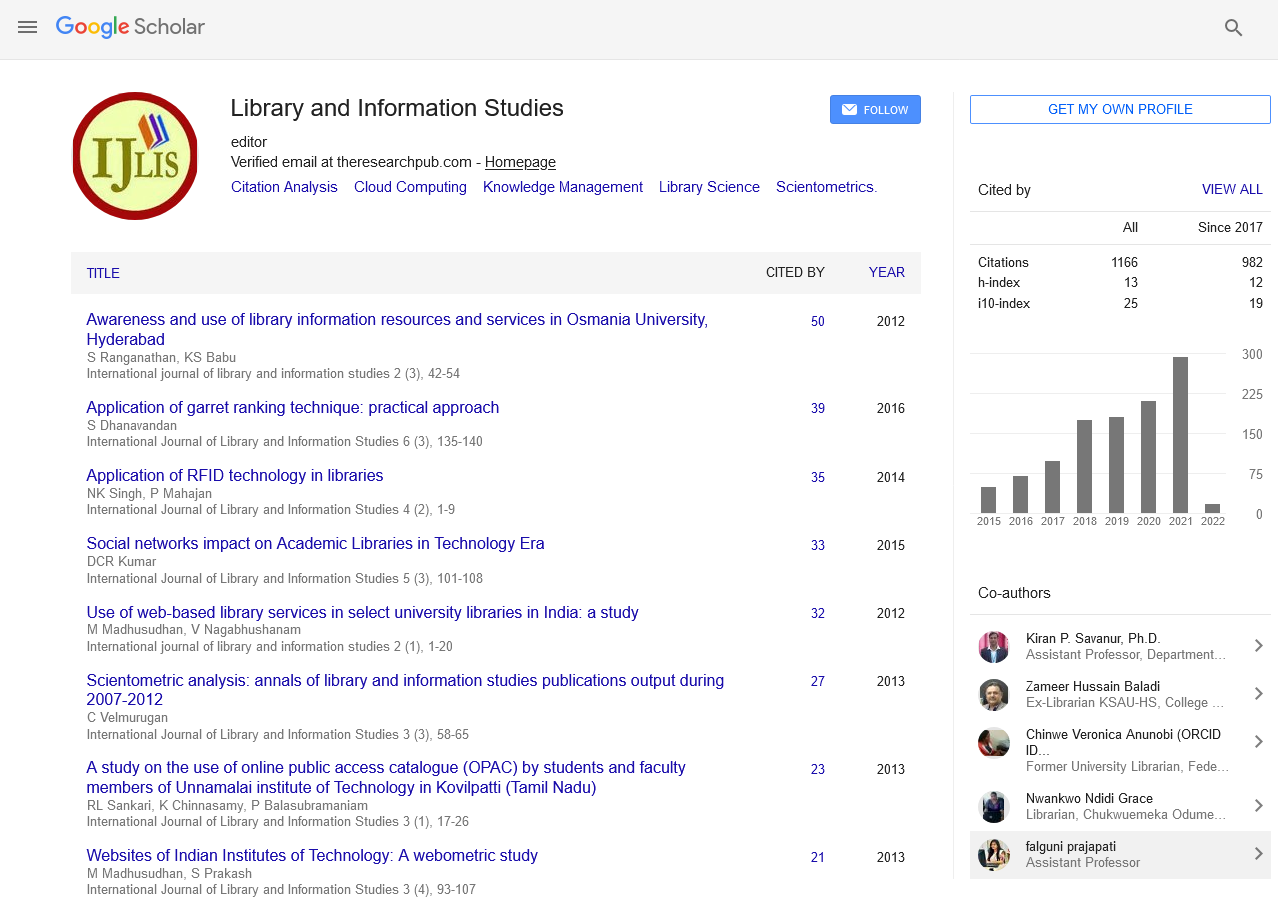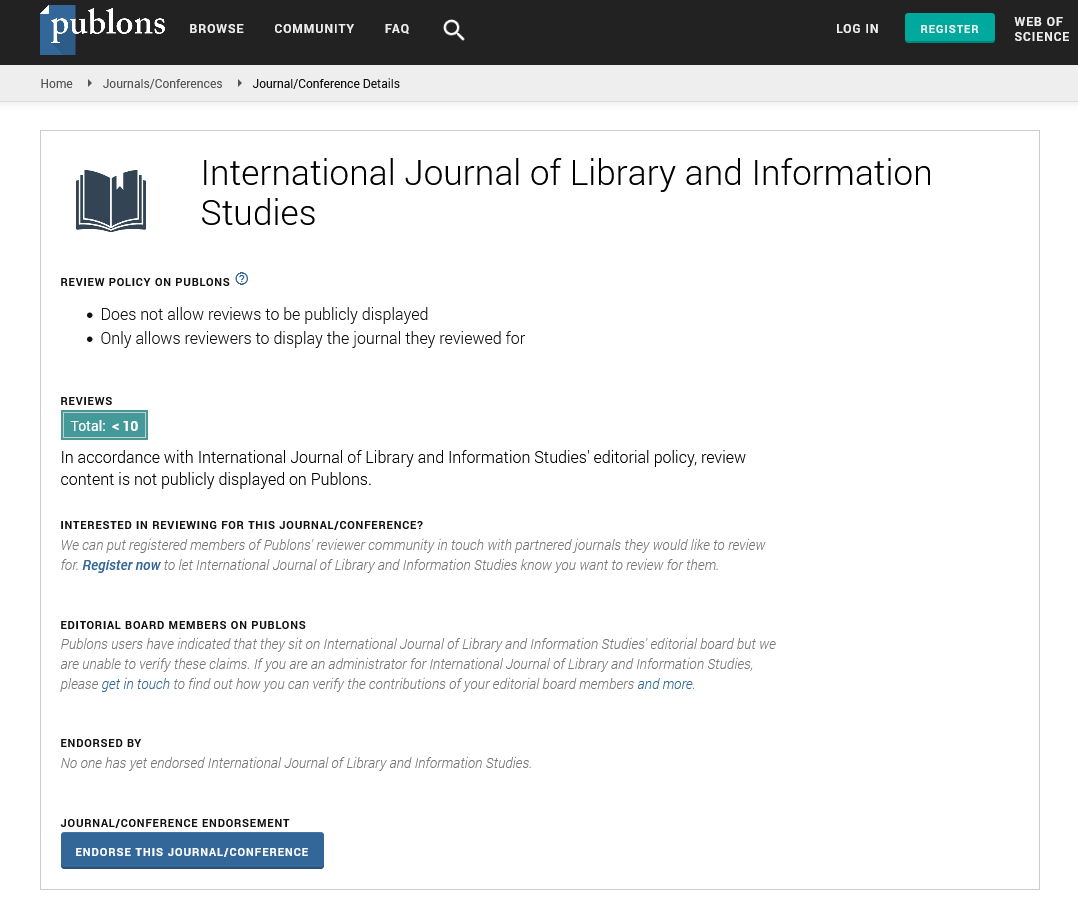

Influence of Catalogue Use Approaches and Skills on Users? Information Retrieval in University Libraries of North East Zone, Nigeria
Abstract
Author(s): Ifraimu Lawan Istifanus, Emmanuel Amiel Usman, Samuel Arubam Amkpa
This paper determined the influence of catalogue use approaches and skills on users’ information retrieval in university libraries of North East Zone, Nigeria. The study determined how approaches of users and skills can influence users’ information retrieval. The study adopted survey research design. A sample size of three hundred and seventy seven (377) out of twelve thousand, five hundred and fifty six (12,556) registered library users of the university libraries of North East Zone, Nigeria. A self designed questionnaire was used to fetch responses from the registered users of the libraries under study. Five (5) objectives were formulated to guide the the study. Four research questions were generated and answered, and two null hypotheses were tested. Frequency count and percentages were used to answer all the research questions and Chi square (X2 ) was used to test the null hypotheses at 0.05 level of significance using the Statistical Package for Social Sciences (SPSS) version 20. The findings of the study revealed that, the level of information retrieval of the library users was to the low extent in university libraries of North East Zone Nigeria. Also, most of the respondents use subject approaches in university libraries of North East Zone Nigeria. The catalogue use skill of most of the respondents was fairly good. The study also revealed that there is significant influence of catalogue use approaches and skill on users’ information retrieval in university libraries of North East Zone Nigeria. The following among others was recommended that the library management of universities in North East Zone, Nigeria should guide the users in handling the library catalogue so as to improve their information retrieval and also the library management should orient users to explore other approaches when using the library catalogue in university libraries of North East Zone, Nigeria.
Call for Papers
Authors can contribute papers on
What is Your ORCID
Register for the persistent digital identifier that distinguishes you from every other researcher.
Social Bookmarking
Know Your Citation Style
American Psychological Association (APA)
Modern Language Association (MLA)
American Anthropological Association (AAA)
Society for American Archaeology
American Antiquity Citation Style
American Medical Association (AMA)
American Political Science Association(APSA)



